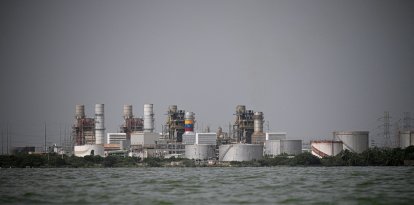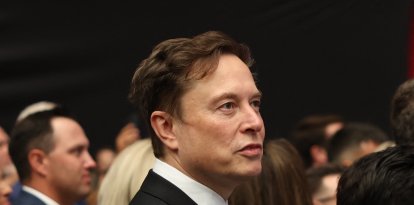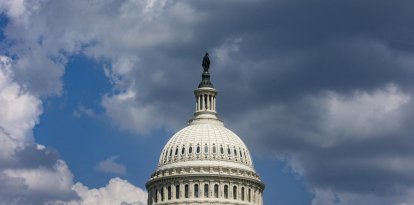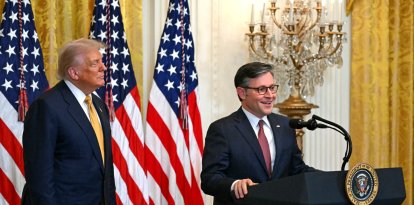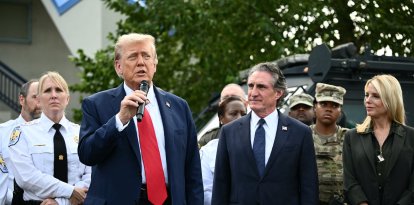Why does Trump need Greenland?
Interview with Guillermo Lafferriere, military analyst specialized in geopolitics: "The US under Trump seems to be heading towards acting as a Great Power in its 'zone of influence'."
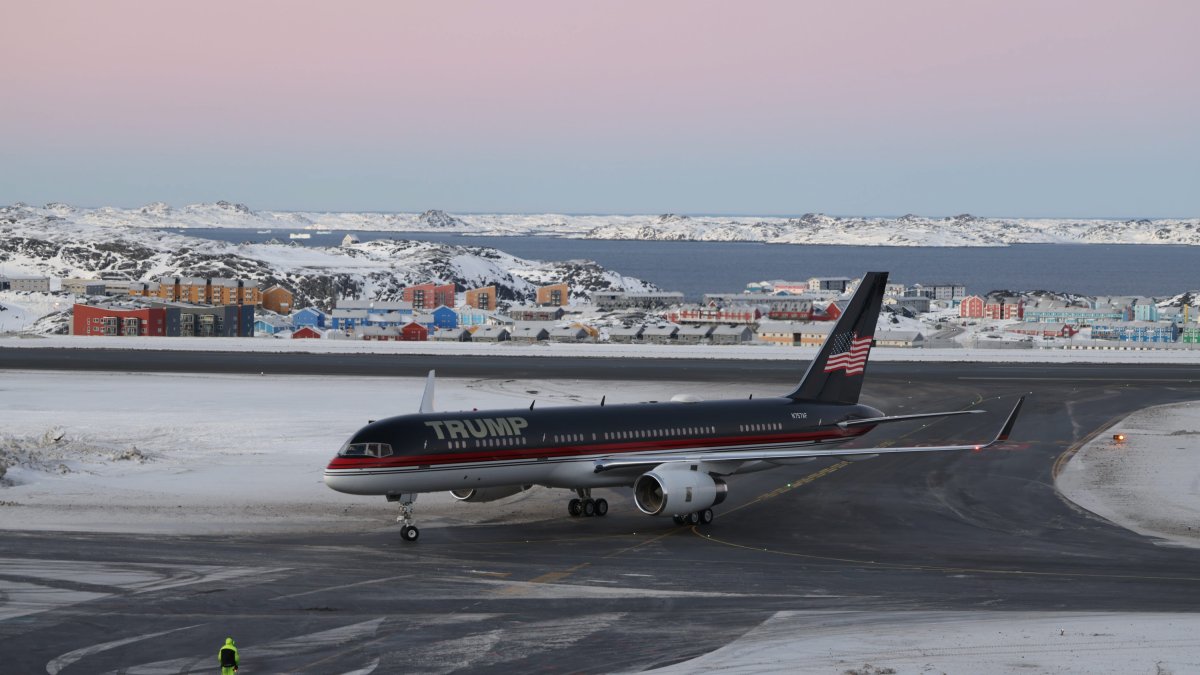
Trump's plane in Greenland
-President-elect Donald Trump has repeatedly stated his desires to expand U.S. borders upon taking office. In particular he has channeled his directives toward Greenland. What is the value of an island with more than 80% of its land covered in ice?
-The value of Greenland, which let us agree is immense, is its geographical position in the North Atlantic. It is located almost "at the exit" of the shipping lanes that the thawing of the Arctic has generated. If we look at a map that observes the world from the North Pole, Greenland with the northern coast of Canada and Alaska form a sort of semicircular containment line that to some extent limits the projection that both Russia (with 24,000 km of coastline on the Arctic) and China can make from the Far East to Western Europe. It seems a strange approach, but it is the way the world is viewed with strategic eyes.
-What is the presence of the world powers in the Arctic and North Atlantic?
-In the Arctic operate mainly all the "coastal" countries with their Armed Forces. This includes the Scandinavians, Finland, USA, UK and Russia. The only one with relatively large forces on a permanent basis is Russia. Outside of the military, China and India are very active there as well. In no small measure the Arctic is a mirror of what may happen in the future with Antarctica.
-Are China and Russia operating together in the Arctic and the North Atlantic, with what infrastructure, and what danger do they pose to the United States?
-No doubt they are operating together but they are at an early stage of the relationship. Some Austrian analyst even predicts that we are heading for a Cold War 2.0 between the US and "dragon-bear." This Russian-Chinese interaction is the poisoned legacy that Biden generated with his disastrous approach to security issues in Europe that resulted in the Russia-Ukraine war with all of NATO in support of the latter. It is enough to listen to Trump's statements of a few days ago to ratify in full what I am saying about Biden. Regarding this interaction, the use of the Arctic goes beyond the economic opportunities and takes us to the military ones, since China can now project direct naval power over the West without passing the so-called first line of islands in the Pacific, which is one that starts in Japan and continues to the Philippines and little further. This Arctic route also takes place in an area where Russia has control of 24,000 km of coastline with more than eleven nuclear-powered icebreakers and a long tradition of military presence in the area. That poisoned legacy of Biden is a real embarrassment to the West.
-What is NATO's presence in the region?
-NATO has a sporadic presence in the region through military exercises. However, it is very likely that US, French or UK ballistic submarines patrol the area as part of their regular deployments. In no way does NATO's presence, in my view, serve in the face of the magnitude of a Russian-Chinese axis such as the one mentioned.
-Why did the US not prevent the advance of hostile powers until now? Can it reverse the loss of competitive advantage?
-Because with respect to Russia it was underestimated and in a sense thought of as a great power incapable of acting as such. A blunder that we owe in recent times to Bush (Jr.) and was crowned by the disastrous Biden administration. As for China, the US has focused on military aspects, when China is a challenge that goes far beyond the military, acting in the economic, technological and political influence today at a global level. To complicate matters, the US has failed to modernize its military, especially its nuclear arsenal, in recent years. I'm not sure if this trend can be reversed.
-How does the rest of the conflict scenario unfold in the area?
-This should not be analyzed as a situation that is already fully unfolding. In strategy and geopolitics, actions are taken preventively to avoid certain processes from reaching their full magnitude.
- Have you referred on several occasions to the new routes that China is opening up?
">HILO Comenzamos el diario reporte, donde trataremos de comprender las referencias de Trump a Groenlandia, Canadá, el Canal de Panamá y el tema rehenes que mantienen los terroristas de Hamas
— Guillermo Lafferriere (@glafferriere) January 8, 2025
Ahí vamos!!
a. Groenlandia y Canadá
1) Todo lo referente a esta inmensa superficie en el… pic.twitter.com/szYTTutHWM
-In a very crude way they enable ships in the extreme northeast of China to sail through the Arctic and appear in northern Europe. That can already be done with the cooperation of Russia.
-Do you think Denmark is in a position to resist Trump's ambitions, what kind of conflict can be caused within NATO?
Denmark could never oppose anything serious. Nor does it have any military capability to meet the strategic challenge we have described. Should the U.S. decide to treat Russia as an enemy on par with China, Greenland would be crucial. NATO knows this as well. They may reach some sort of agreement regarding military bases, but I wouldn't bet on the U.S. waiting too long for this.
-Many analysts see in Trump's interest in Canada, the Panama Canal and Greenland a re-edition of some royalist policies. Is the U.S. entering a new era of meddling? Can it regain the geopolitical influence it has lost over the years? Is this new aggressive strategy necessary? In short: is it imperative for Trump to keep Greenland?
-Trump and his team are fully aware of both the disastrous legacy of Biden and the change in the strategic situation resulting from decades of disastrous US policies such as Afghanistan and Iraq, not to mention everything related to the "Arab Spring." The US has undoubtedly lost strategic credibility, something that is not adequately perceived by the general public, but clearly by all US allies. This lack of credibility, something that de Gaulle and Adenauer glimpsed in the early 60s of the 20th century, is such that not just a few in Europe and Asia are wondering whether the US is willing to fight for them in the event of a crisis. That is the state of affairs we are in. If Trump stays only in statements regarding the issues raised by the question, we will see a world going to a nuclear proliferation they cannot even imagine.













